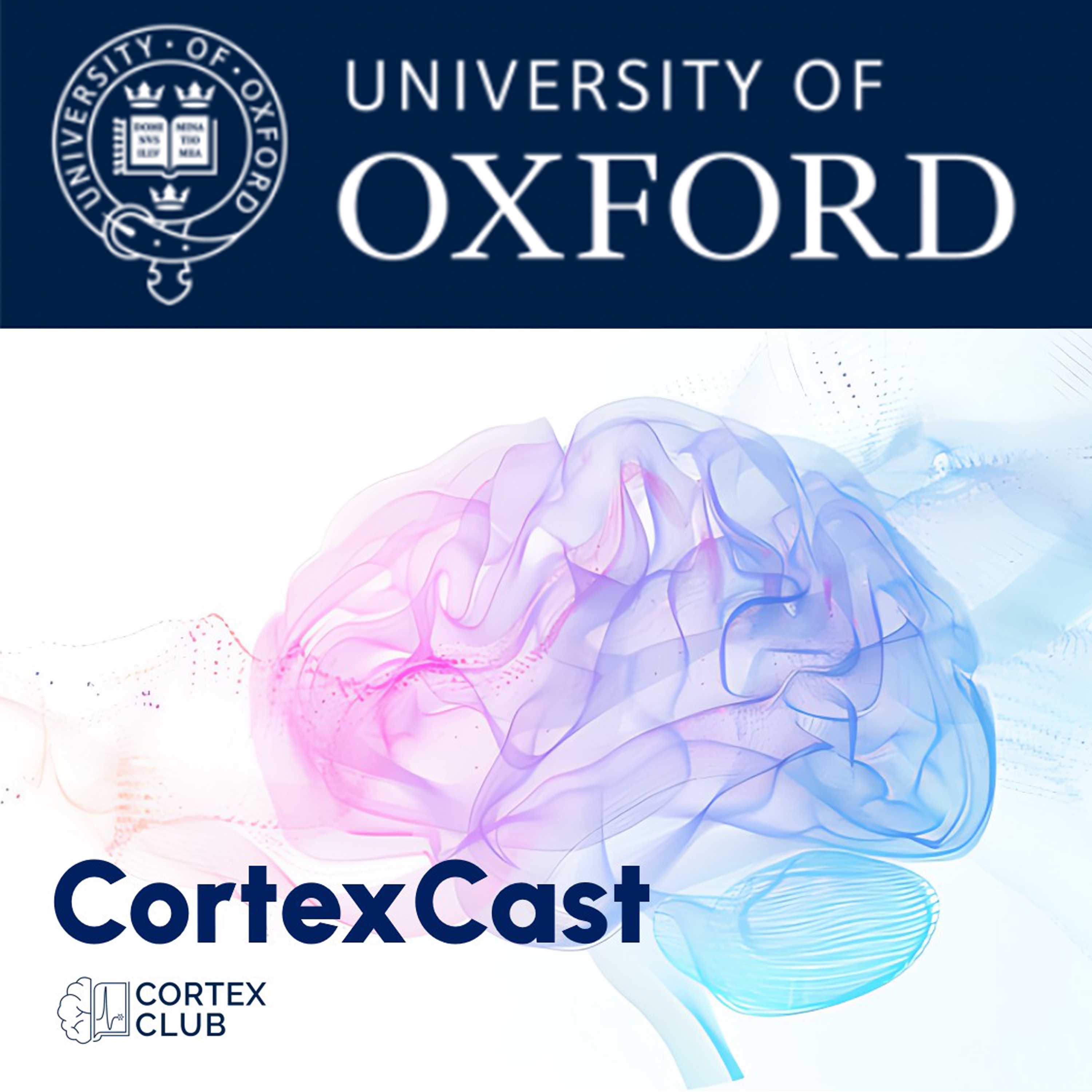

CortexCast - A Neuroscience Podcast
Oxford University
Welcome to CortexCast, a space for deep dives into the workings of the human brain. We explore neurones and networks, memory and meaning, the biology of thought and the art of being. Each episode brings inspiring conversations with world-leading neurobiologists that connect science, philosophy and imagination. This is the official podcast of Oxford University Cortex Club - the student-led neuroscience society that through research seminars and workshops unites the academic community to decode the mind.
Episodes
Mentioned books

Jan 26, 2026 • 21min
Season 3 Episode 3 | Between Order and Chaos: Exploring the Entropic Brain
Why do psychedelics, dreams, and mental illnesses feel so different from everyday awareness? We unpack the Entropic Brain Hypothesis and what it tells us about flexibility, rigidity, and the architecture of conscious experience. Consciousness may not be a stable state, but a delicate balance between structure and freedom. In this episode, we explore the Entropic Brain Hypothesis - a framework proposing that the richness of conscious experience depends on how flexible and unpredictable brain activity becomes. Drawing on research into psychedelics, altered states, and psychiatric disorders, we discuss how shifts in brain entropy may underlie creativity, rigidity of thought, and therapeutic change, offering a new lens on the dynamics of the mind.
Reference: Carhart-Harris, R.L. (2018) The entropic brain – revisited, Neuropharmacology, 142, pp. 167–178. https://doi.org/10.1016/j.neuropharm.2018.03.010

Nov 10, 2025 • 57min
Season 3 Episode 2 | Our Brains, Our Selves: In Conversation with Prof. Masud Husain
If memory fades or motivation disappears, what remains of the self? In this episode, Professor Masud Husain reflects on how neurological disorders illuminate the fragile yet resilient architecture of human identity Our sense of self feels indivisible - until the brain begins to fracture it. In this episode, we are joined by Professor Masud Husain, neurologist and clinical neuroscientist at the University of Oxford, to explore how the brain’s failures can reveal its deepest workings. Drawing on his award-winning book Our Brains, Our Selves, he shares the stories of patients whose losses of words, memory and willpower challenge our understanding of identity. Along the way, we also engage in philosophical discussions about consciousness and AI. Our conversation is as much about humanity as it is about neuroscience - thoughtful, compassionate, and quietly profound.

Oct 9, 2025 • 12min
Season 3 Episode 1 | Through the Looking Glass: How Your Eyes Decode the Light Show
How does the human eye transform waves of light into the vivid, detailed experience we call vision? In this episode of CortexCast, we follow photons on their journey from the moment they strike the retina to the point where visual signals begin to take shape. We explore the cascade of biochemical reactions triggered by molecules such as retinal and rhodopsin, the roles of rod and cone cells in night and colour vision, and the vulnerability of the central retina in age-related macular degeneration. We then turn to the networks of bipolar and horizontal cells, where visual information is funnelled, filtered, and sharpened into receptive fields — the brain’s earliest building blocks of images. Along the way, we uncover how a patch of neural tissue at the back of the eye becomes the gateway to our entire visual world.

Sep 9, 2025 • 28min
Wired for Care: Neural Circuits with Dr. Johannes Kohl
In this episode, Neddy speaks with Dr. Johannes Kohl on the brain circuitry behind instinctive behaviours like parenting and shares insights for early-career researchers navigating the fast-moving world of neuroscience.

Mar 20, 2024 • 23min
Motor neurone disease and iPSCs - Dr. Björn Vahsen
In this episode, Katy interviews Björn Vahsen to discuss his ongoing research on Motor neurone disease using iPSCs to co-culture microglia and motor neurons.

Jan 29, 2024 • 20min
Sleep and Scents - Dr. Julia Harris
In this episode, we interview Dr. Julia Harris to discuss her ongoing research on sleep utilising the olfactory system.

Nov 22, 2023 • 31min
Recovering Movement - Charlotte Stagg
In this episode with Professor Charlotte Stagg, we talk about non-invasive brain stimulation techniques used to understand how the brain adapts to new challenges in the recovery of motor function after stroke. https://www.ndcn.ox.ac.uk/team/charlotte-stagg

Oct 6, 2023 • 32min
Snoozing Fruitflies
In this episode with Dr Sarnataro, we explore techniques used during his recent PhD to investigate the mitochondrial dynamics in neurons of sleeping fruitflies. Raffaele also offers advice on how to make the most of an Oxford PhD position. Raffaele Sarnataro — Department of Physiology, Anatomy and Genetics (DPAG) (ox.ac.uk)

Aug 1, 2023 • 21min
The Moving Brain with Dr. Andrew Peters
We met with Dr Andrew Peters (a new PI) to discuss his career in neuroscience so far studying movement in the brain. By combining multiple modern techniques, Andy interrogates global circuits during motor learning and behaviour.

Aug 1, 2023 • 53sec
Season 2 Trailer
The trailer for the second season of CortexCast.


